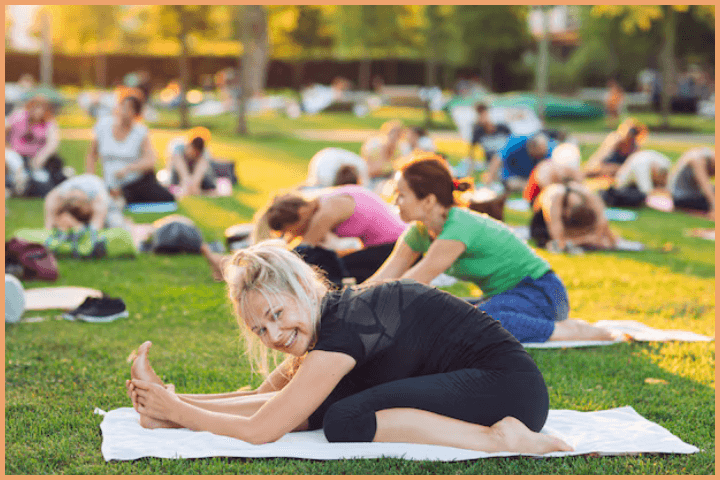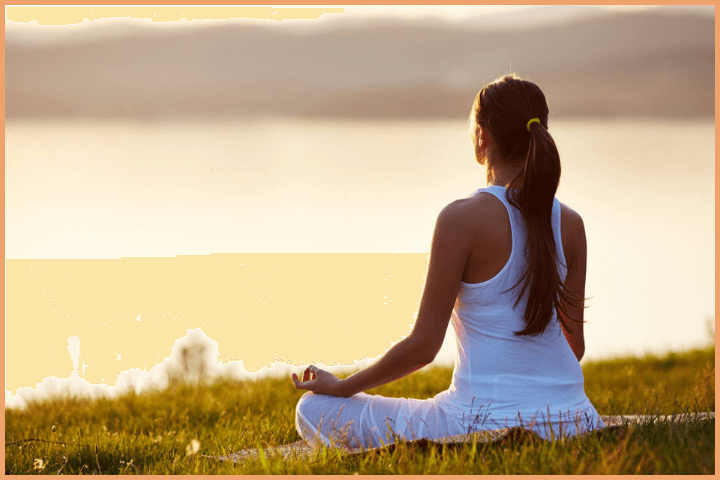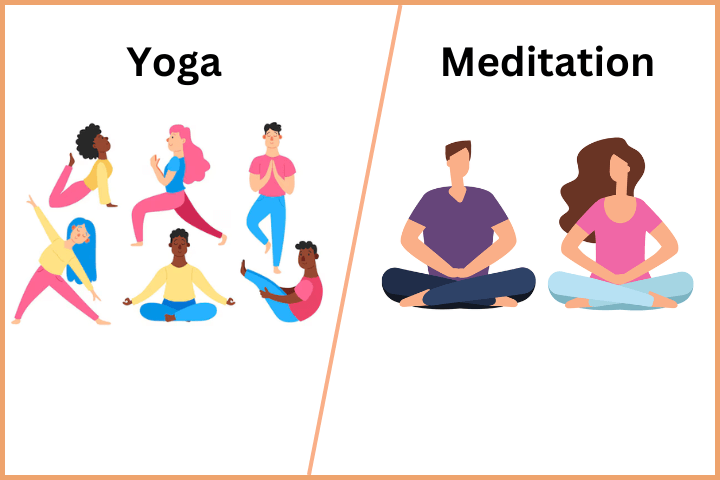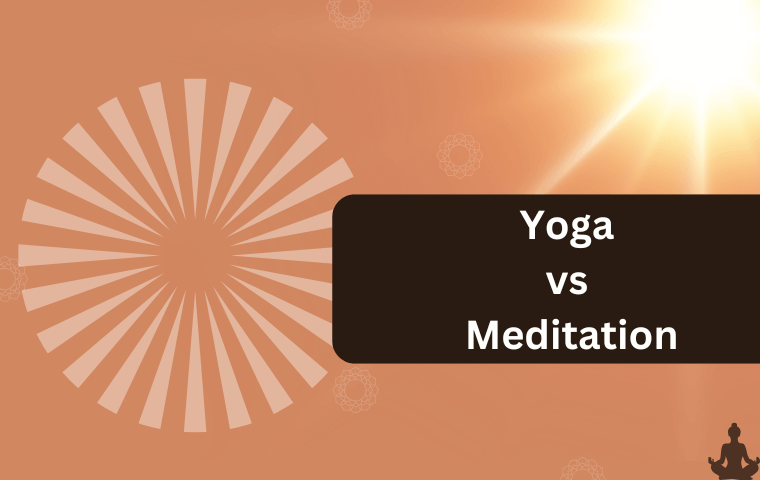Yoga and meditation are ancient practices with roots in India, often mentioned together due to their shared goal of promoting physical and mental well-being. However, they are distinct practices with unique methods, benefits, and purposes. Let’s explore the differences, similarities, and benefits of Yoga vs Meditation to help you understand which practice or combination is right for you.
What Is Yoga?

Yoga is a well-rounded practice that unites body movements, breath regulation, and mental awareness. It works on improving the connection between the mind and body to enhance overall well-being. Yoga offers a variety of styles, like Hatha, Vinyasa, and Iyengar, each tailored to accommodate diverse fitness needs and personal goals.
Yoga is often seen as an active practice that requires physical movement. It boosts flexibility, balance, and strength while calming the mind through breath and focused attention. For seniors or those with limited mobility, options like chair yoga make it accessible to everyone.
What Is Meditation?

Meditation focuses on mental clarity, relaxation, and awareness. Unlike yoga, it is primarily a mental practice involving stillness. By employing methods like focused awareness, visualization, or repeating mantras, meditation promotes mental calmness, stress relief, and a deep sense of peace.
Meditation can be done anywhere while sitting comfortably, lying down, or even walking. You can even use the best meditation cushion to maximize your comfort. The practice does not require much time or space, making it an easy addition to daily life.
How Are Yoga and Meditation Similar?
Yoga and meditation share several key features:
- Mind-Body Connection: Both practices aim to align the mind and body, promoting harmony and balance.
- Focus on Breathing: Controlled breathing is central to both, helping calm the nervous system and increase mindfulness.
- Stress Reduction: Yoga and meditation are effective tools for reducing stress and enhancing emotional well-being.
- Self-Awareness: Both encourage introspection, helping you connect with yourself on a deeper level.
Key Differences Between Yoga and Meditation
| Aspect | Yoga | Meditation |
|---|---|---|
| Focus | Physical postures and breathwork | Mental clarity and focus |
| Movement | Active, involving physical activity | Still, focusing on the mind |
| Duration | Sessions range from 20-90 minutes | Typically shorter, starting at 5-10 minutes |
| Space Required | A space for movement and poses | Minimal space, just for sitting |
| Goal | To improve physical and mental health through movement | To achieve inner peace and awareness |
Benefits of Yoga
Yoga offers physical and mental advantages:
- Improves Flexibility and Strength: Yoga stretches muscles, enhancing mobility and physical strength.
- Enhances Balance: Regular practice helps with stability, reducing the risk of falls, especially in seniors.
- Relieves Stress: The focus on breath and movement calms the mind.
- Boosts Mood: Yoga increases endorphins, promoting a sense of happiness and relaxation.
Benefits of Meditation
Meditation primarily benefits the mind:
- Reduces Anxiety: Mindfulness meditation helps manage emotions and decrease stress.
- Improves Focus: Meditation trains the mind to stay present, enhancing concentration and productivity.
- Promotes Better Sleep: Relaxation from meditation helps with insomnia and improves sleep quality.
- Lowers Blood Pressure: Regular practice can contribute to better heart health.
Can Yoga and Meditation Work Together?

Absolutely! Yoga vs Meditation isn’t really a competition, as both practices complement each other beautifully. Yoga helps the body get ready for meditation by easing physical tension and soothing the mind. Many yoga sessions end with a short meditation to deepen relaxation. Combined, they foster a harmonious equilibrium of physical energy and mental tranquility.
Which One Should You Choose?
The choice between yoga and meditation depends on your goals:
- Choose Yoga if you want to improve physical health, flexibility, and strength while reducing stress.
- Choose Meditation if your main focus is mental clarity, relaxation, or managing emotions.
- Try Both for a complete mind-body experience, enhancing overall well-being.
By recognizing the distinct advantages of yoga and meditation, you can select the practice that best aligns with your needs or blend both to create a well-rounded and enriching wellness path. Begin with small steps, maintain consistency, and embrace the transformative power of yoga and meditation.

